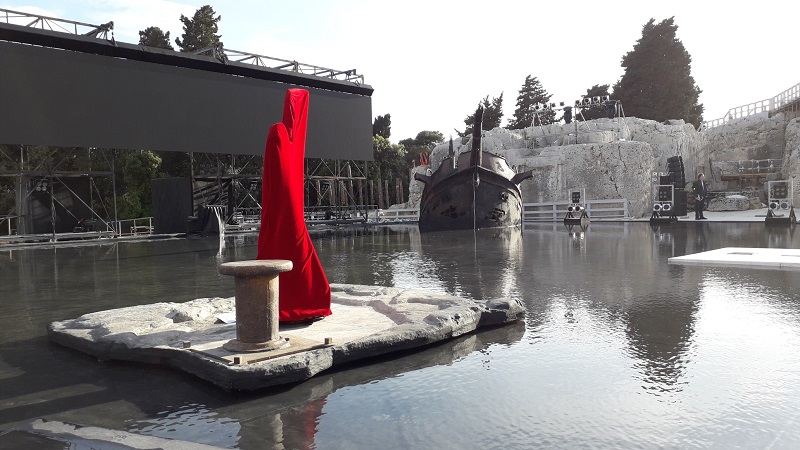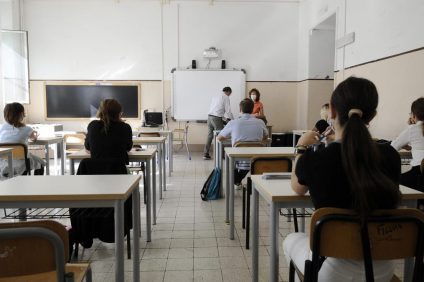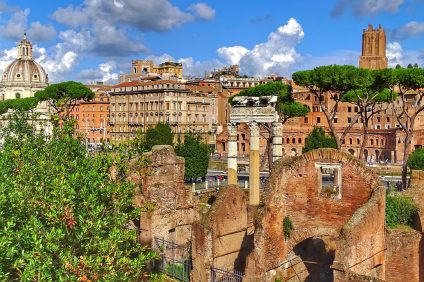Women, war, their ability to get up in the face of an adverse fate. They are the protagonists of the tragedies on the bill in Syracuse for the XNUMXth season of shows at the Greek theatre. The review is promoted by the Inda, the national institute of ancient drama. The Institute has always been an excellence in the promotion of cultural events. Classical representations are an appointment that those who love theater cannot miss.
"Women and war" for the Inda season
“Elena” and “Le Troiane” by Euripides are the two tragedies chosen this year. The debut was like every extraordinary year. From an initial assessment they counted about 4 thousand visitors, at first, and the data will certainly grow. Two tragedies that tell what happened with the Trojan War, and the consequences that foreign domination brought on women, victims of an adverse fate. Two tragedies which, however, are diametrically opposed. “Elena” is directed by Davide Livermore, towards an original reinterpretation, which often leads to opera, so dear to the director. “Le Troiane” instead signed by Muriel Mayette-Holtz reflect the tradition of classicism.
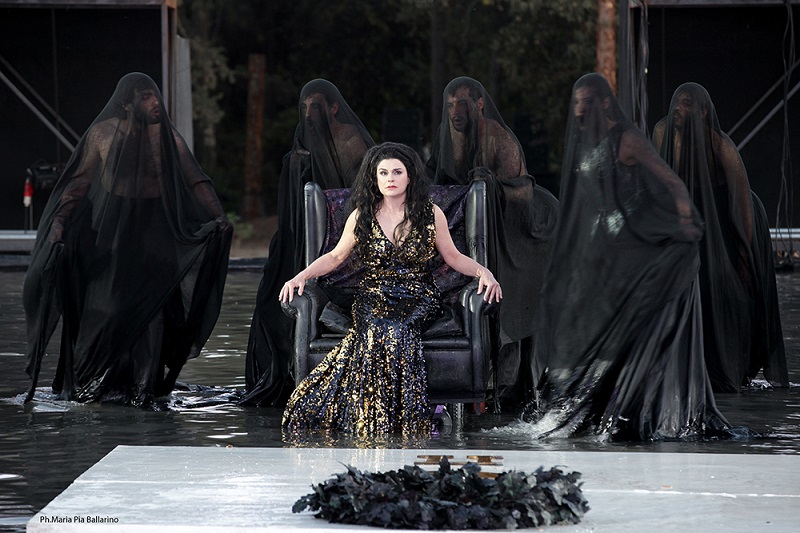
Elena di Euripides played by Laura Marinoni, already chosen by the Inda
The uselessness of war through an absolutely original and at times ironic reinterpretation of a Euripidean tragedy. "Elena" was the first show that opened the season of shows classics. "The great theatrical rite of Syracuse - the superintendent of Inda Antonio Calbi has often said - makes us understand how theater is really the first social network that man has invented to see what happens to him in reality, in the relationship with the others, with the divine, with the earth and above all within oneself ”. Director Davide Livermore proposed a re-reading of the original text. A "disturbing dialectic" between true and false, between reality and appearance. Performing for the fourth time at the Greek theater was Laura Marinoni, extraordinary interpreter of Elena.
The cast of the drama
Also on stage Viola Marietti, Sax Nicosia, Mariagrazia Solano, Simonetta Cartia, Giancarlo Judica Cordiglia, Linda Gennari and Maria Chiara Centorami. To serve as a side dish but with a the choir has a specific role, with Federica Quartana and then Bruno Di Chiara, Marcello Gravina, Django Guerzoni, Giancarlo Latina, Silvio Laviano, Turi Moricca, Vladimir Randazzo and Marouane Zotti.
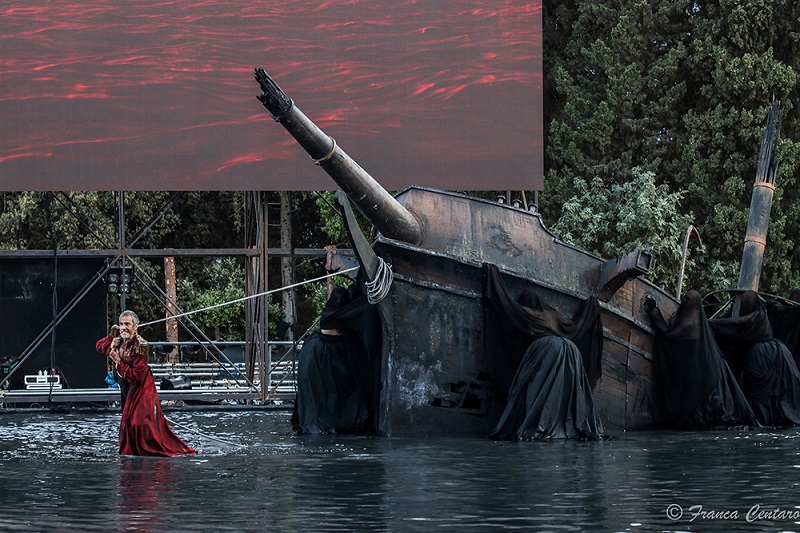
The link with opera
Many sounds that characterized the show: the water as a side dish, with his play of tubs that invade the orchestra and the music of Andrea Chenna. The rest is done by the lights of Antonio Castro and the video design by D-Wok.
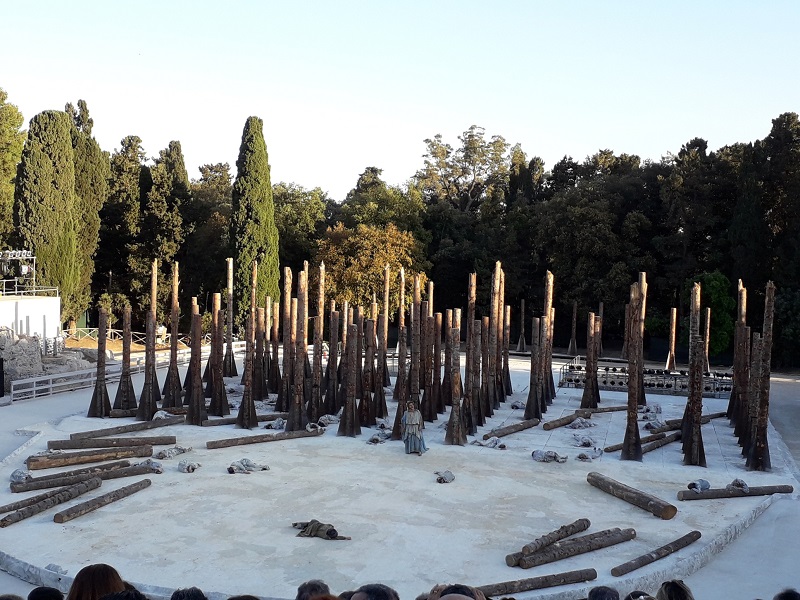
The desolate land in the scenography of "Le Troiane"
"Le Troiane ”by Euripides are a dip in the past, in the tradition of classical shows. The leitmotif of the drama is the ability of women to get up, to courageously accept their destiny and to move forward. A tragedy that speaks of rebirth, of reconstruction, like those tree trunks that stand out on the scene, signed by the architect Stefano Boeri. He chose the logs felled by bad weather in Carnia, which will relive in the Sicilian wood supply chain where they will then be transferred. A desolate land described by Euripides with the signature of Boeri and the trees of Carnia, integrates with the context in which the famous Milanese architect measures himself with humility.
Maddalena Crippa and Paolo Rossi the two great interpreters
And a powerful one on the scene Ecuba interpreted by Maddalena Crippa. Also on stage are Marial Bajma Riva (Cassandra), Elena Arvigo (Andromaca), Paolo Rossi (Taltibio), Massimo Cimaglia (Poseidone), Francesca Ciocchetti (Atena), Graziano Piazza (Menelao), Viola Graziosi (Elena), and again, Clara Galante, Elena Polic Greco, Riccardo Livermore, Riccardo Scalia. This choral tragedy was also capable of engaging the public. Marcella Salvo dressed the protagonists in gray, smoky clothes, inspired by the cloud of dust after the collapse of the Twin Towers.
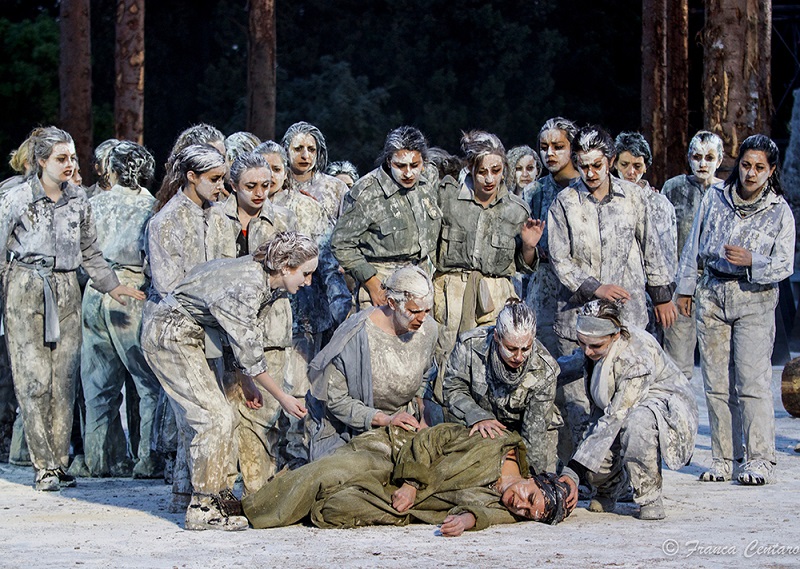
The "Bosco delle Troiane"
The scenic project conceived by Boeri with the Inda is completed with the rite of planting a real Bosco delle Troiane in Syracuse. Every evening about fifty spectators of the 20 reruns of the Trojans will receive from the hands of the protagonists, at the end of the performance, some holm oak plants. These trees will then be planted in an area of Syracuse behind the Court to give life to the Bosco delle Troiane. A project promoted in collaboration with the Regional Agriculture Department.
The hope of women in the Inda message
Both Elena and Hecuba, like all the women protagonists of these two dramas of the Inda season, embody the hope of beings who not only do not give up, but who decide to move forward. All wars are in some sense identical. They destroy everything, winners and losers. And in the destruction of the war the Trojans are the only ones left standing. And they will still be women will be the protagonists from June 28 of the comedy that will be staged at the end of the two tragedies on the bill a SIRACUSA. Tullio Solenghi will conduct "Lisistrata" by Aristophanes, with Elisabetta Pozzi and Massimo Lopez. There will be laughter, but also to reflect once again on the role of women in a great war.

